Jewellery designs from New Designers showcase question normative gender roles
A necklace strung together from images of male nipples is among five projects from 2020 graduates selected by the organisers of the annual New Designers showcase to be exhibited in this VDF school show. The students, who hail from different universities and courses across the country, have shared designs that exaggerate and subvert traditional notions The post Jewellery designs from New Designers showcase question normative gender roles appeared first on Dezeen.

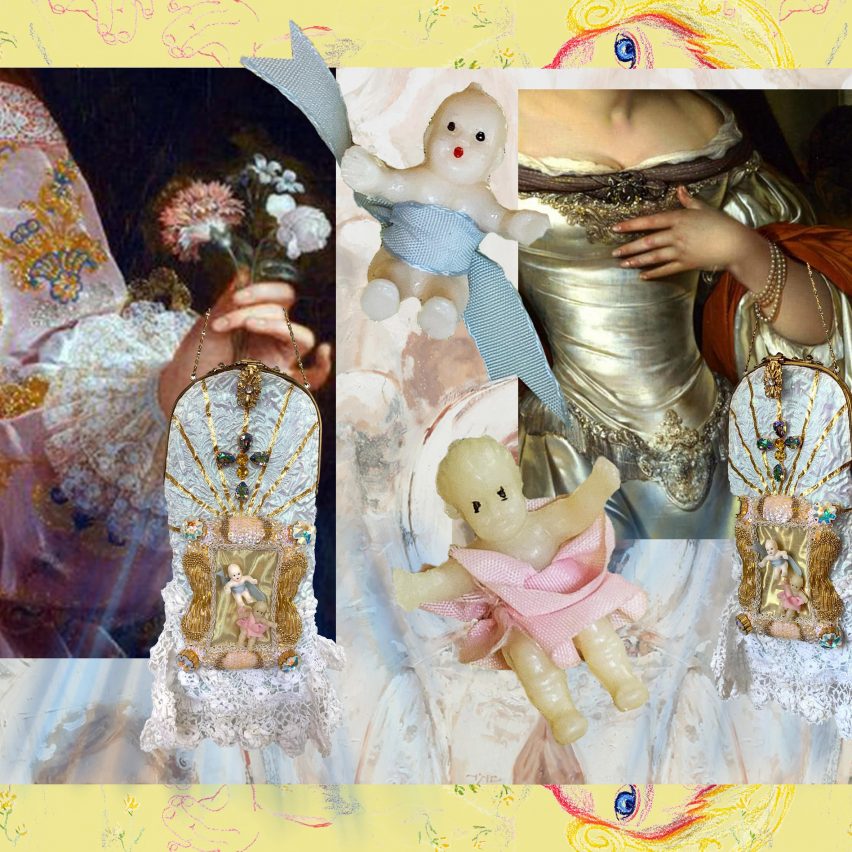
A necklace strung together from images of male nipples is among five projects from 2020 graduates selected by the organisers of the annual New Designers showcase to be exhibited in this VDF school show.
The students, who hail from different universities and courses across the country, have shared designs that exaggerate and subvert traditional notions of femininity and masculinity, predominantly through the medium of jewellery but also through embroidery and graphic design.
Their work was chosen from the more than 3,000 graduate projects that were set to be featured at the annual New Designers exhibition in London this year.
In lieu of a physical show, the event is taking place digitally this year, with standout projects from 20 students showcased at the Virtual Design Festival, where their work is divided into the four key themes of gender, nature, sustainability and bold, geometric prints.
But even across these disparate categories, organisers say that students' work this year has been united by an increased concern for the environment, as well as for social and psychological wellbeing.
This can be seen in the five projects below, which are primarily concerned with issues of gender but also make a point of utilising recycled metals and ethically sourced gemstones in their production.
New Designers graduate show: Gender
Showcase: New Designers
Instagram: @newdesigners
Organiser: Upper Street Events
Event statement:
"New Designers, the UK's largest design graduate show, celebrates its 35th anniversary in 2020 with the launch of a series of digital initiatives throughout the summer. In lieu of a physical showcase, the event will aim to promote and celebrate the work of the graduate class of 2020. With these virtual initiatives, New Designers hopes to offer graduates alternative opportunities to gain better insights into the design industry and advance in their professional careers in such extraordinary circumstances.
"Since the start of June, New Designers has been running ND Selects, a social media campaign that hopes to offer visibility and recognition to students' final projects. Each day, New Designers publishes a post about different students, highlighting their final piece, alongside their processes and influences.
"This year has seen a surge in final projects that respond directly to environmental and social issues. From game design to textile prints, the class of 2020 has offered creative design solutions for contemporary storage, diagnosing dyslexia and reconnecting children with nature. Making informed and considered material choices that are either recyclable or locally sourced has also been a key focus for many students."
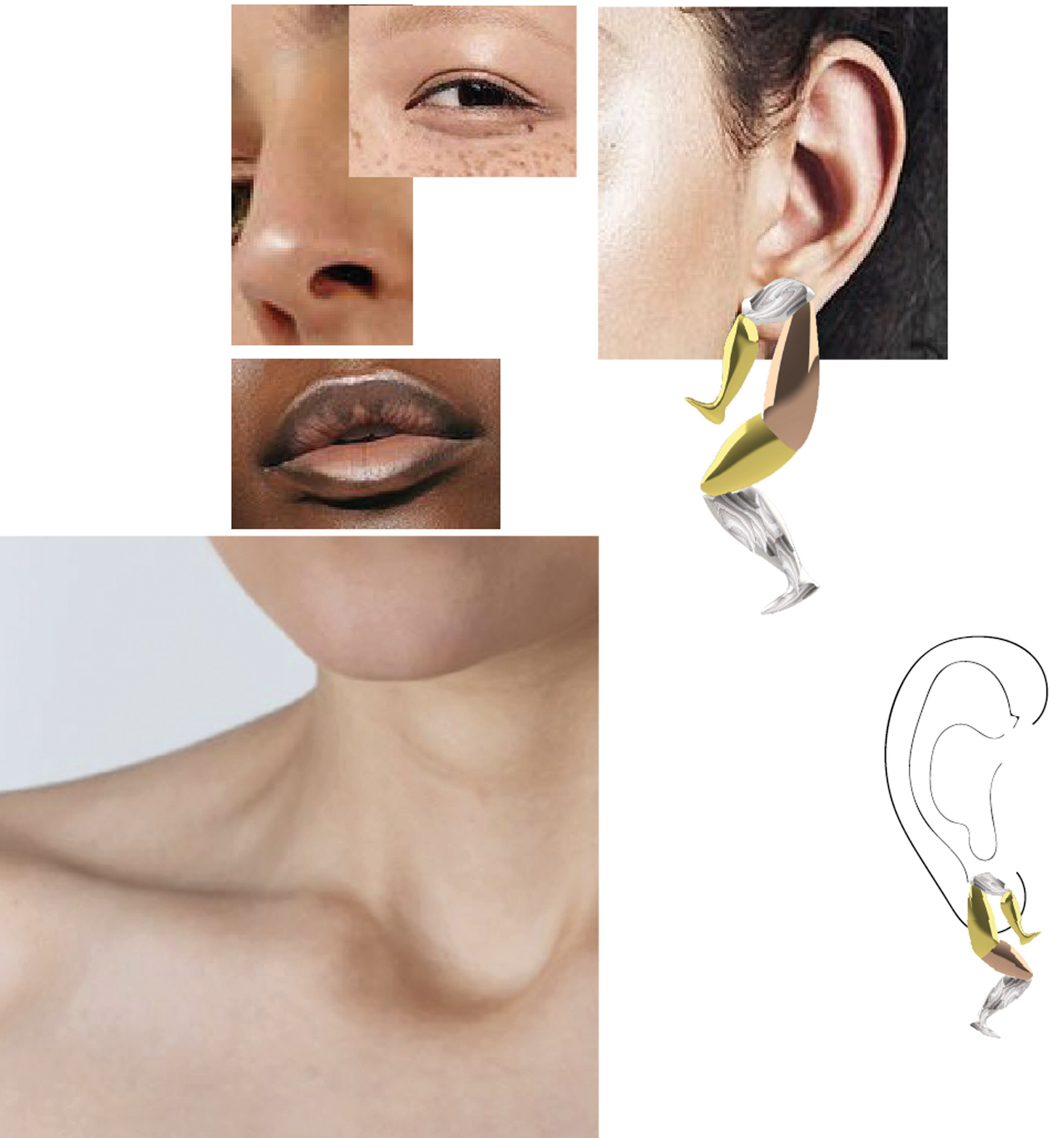
Modern Venus by Daniel Groza
"Modern Venus is a high-end jewellery collection that promotes inclusivity. It highlights the beauty of individuality found within our body shapes and pigments.
"A variety of precious metals are used to create jewellery that matches all skin tones. The Japanese Mokume-gane technique of blending different alloys celebrates imperfections. The hanger motif symbolises rejecting society's image of the 'ideal woman' in favour of a realistic view of the female form, with stretch marks and limbs of diverse proportions.
"Tracing metals back to their natural source is a crucial feminist issue. Women who work at the beginning of the jewellery supply chain are often underpaid, as well as victims of abuse and discrimination. Reclaiming gold family heirlooms and using scraps of silver demonstrates a commitment towards ethical production methods.
"This collection speaks of important feminist matters and enables the wearer to use their body as a canvas – a visual representation of their beliefs."
University: Edinburgh College of Art
Course: MFA Jewellery and Silversmithing
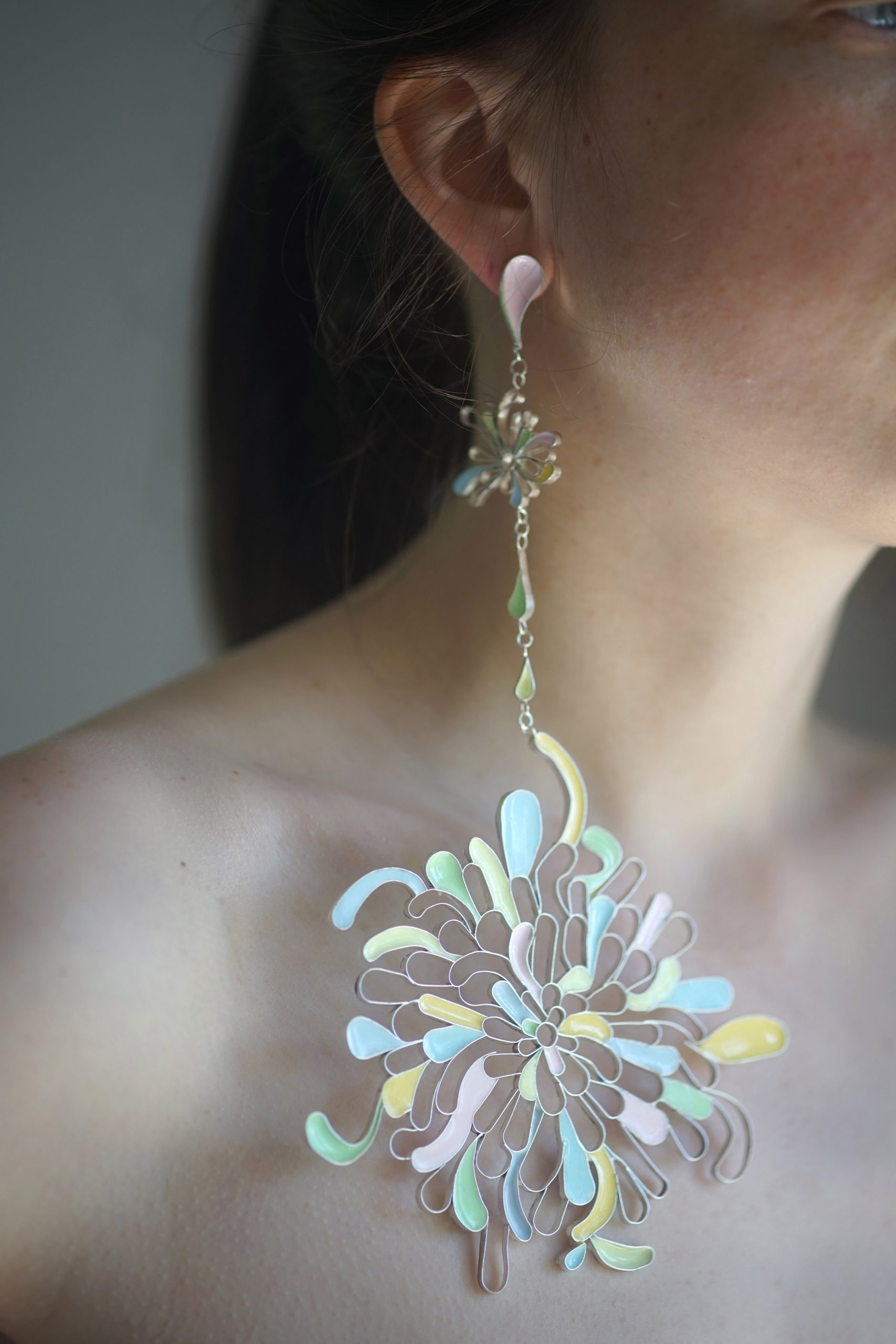
Symbols of Femininity by Celeste Chambers-Hill
"How is gender performed? Alongside ideas generated by theorist Judith Butler and writer Susan Sontag, this collection represents a personal, individual exploration of the ways in which gender is characterised in dress, style, costume, fabrics and colour combinations.
"The processes and practice of designing and making these jewellery pieces was motivated by particular ideas of what might constitute femininity, whether in popular culture, theatre, literature or film, where the feminine is symbolic of specific female energy or force. Playing with such notions of gender constructions, this collection includes objects exaggerated in scale and pattern, with pale, pastel colours that parody what is thought to be an inherently female palette.
"The overall appeal of drag performances and the ambiguity and humorous nature of such performance in particular, provide the context for this collection to challenge constructed and canonical narratives of gender identity. All precious metal used in this collection is 100 per cent recycled and the natural gemstones have been ethically sourced."
University: Glasgow School of Art
Course: BA Silversmithing & Jewellery Design
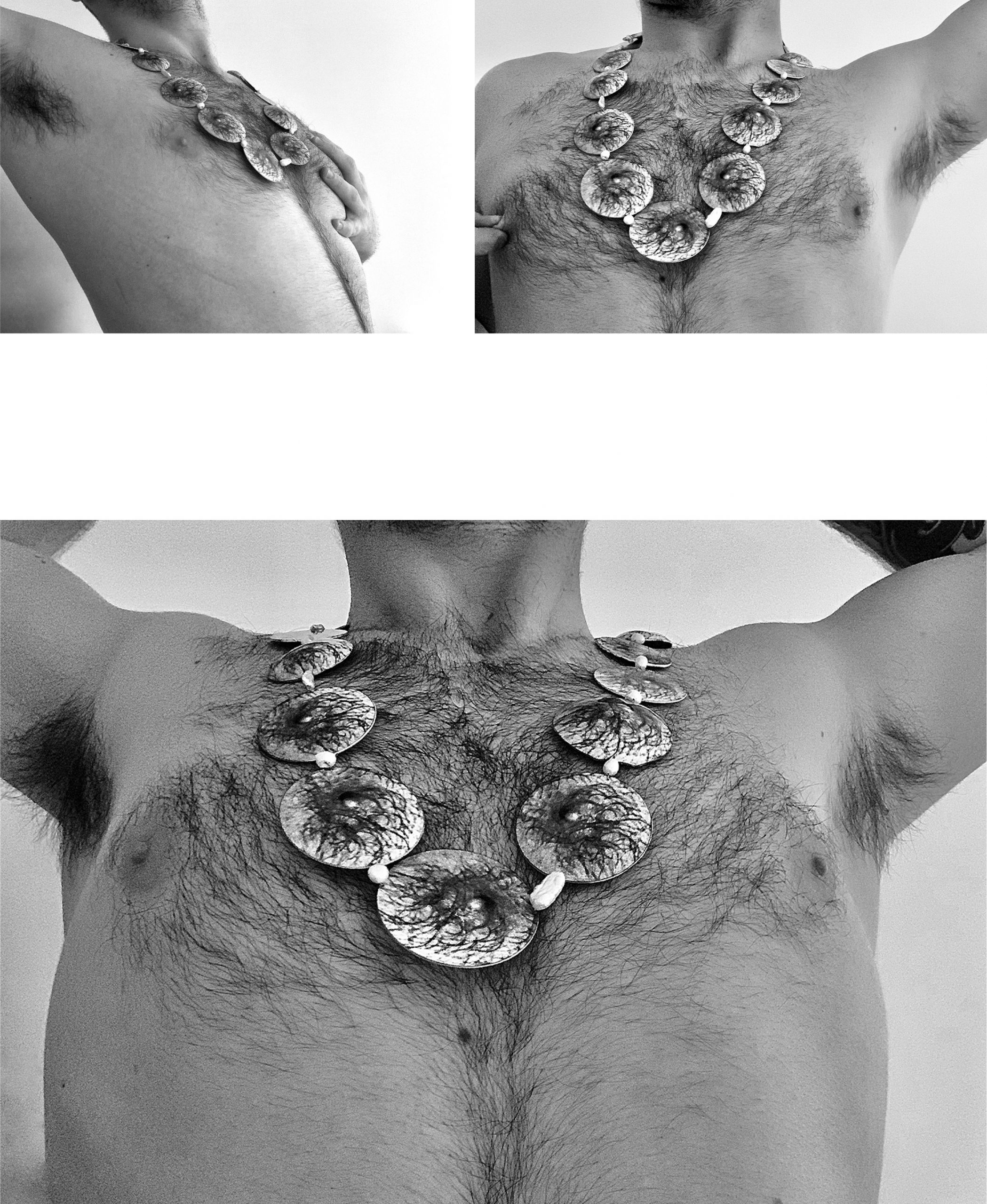
Boys will be boys by Greg Sutherland
"My work is an exploration of male homosexuality and masculinity through the lens of a working-class background. I studied the fetishisation of the hyper-masculine within the gay community and how these masculine ideals can stimulate excitement, fear, rebellion and shame. More specifically, I concentrated on the impact of growing up as a gay man in the age of the internet, bringing into focus the impact of an oversaturation of explicit content and the birth of an image-obsessed body culture.
"Photography of the body provides substantial inspiration for my work, and I use it directly as a medium for creating jewellery. I view my pieces as possessing cyclical qualities, designing from the body and for the body. I also take inspiration from pop culture, traditional symbolism and the architecture of my hometown, which I use as a metaphor to express feelings of suppression, frustration and constriction.
"My approach to making is centred on traditional jewellery techniques and handmaking skills. I hope to blend humour, sex and fashion alongside my intimate feelings and experiences to create pieces of contemporary jewellery that are intriguing, captivating and offer a narrative."
University: University of Dundee
Course: BDes Jewellery and Metal Design
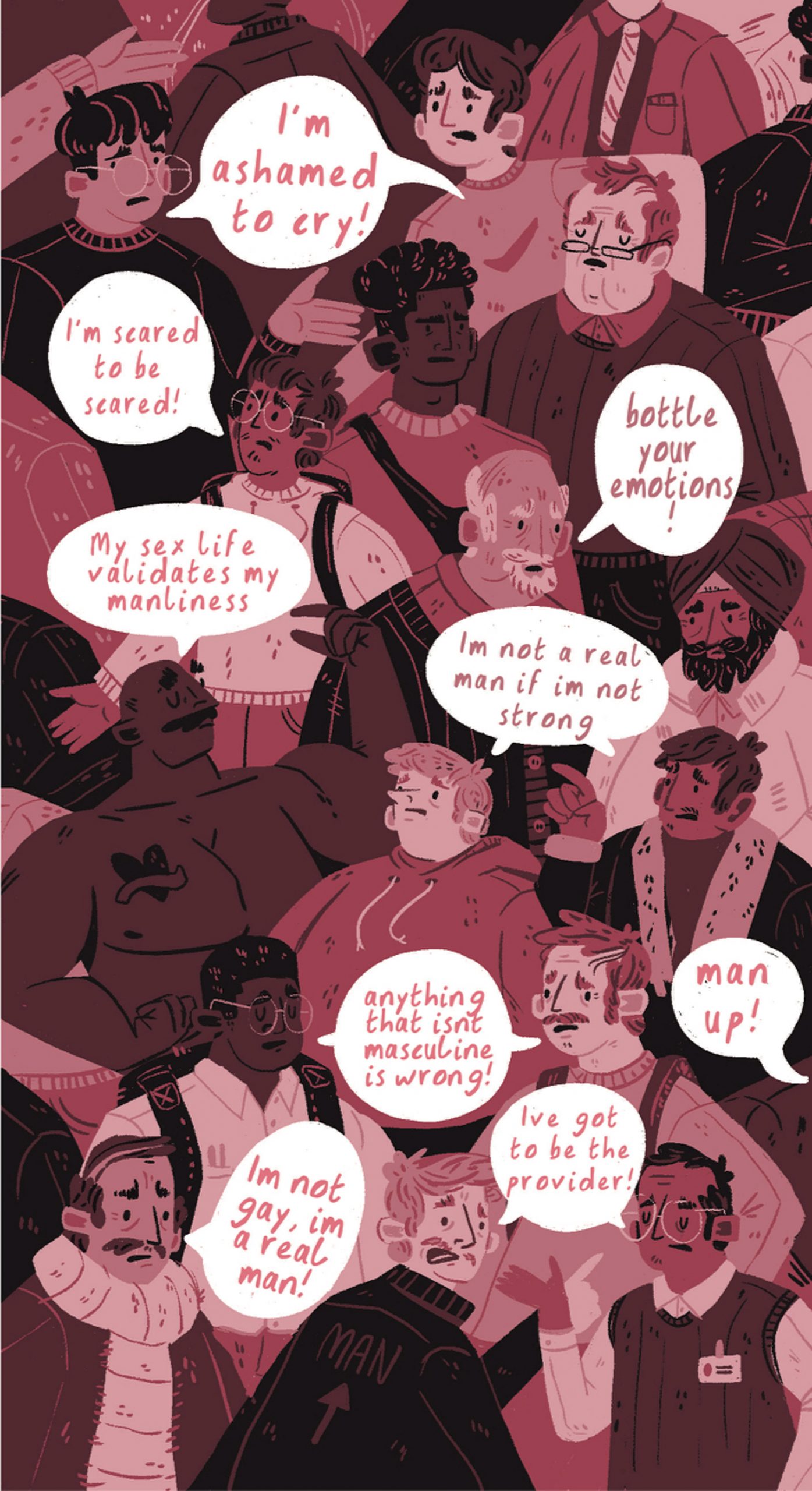
Man Up by Sean Morgan
"Man Up is a booklet about toxic masculinity and how we can try to solve the problems it causes."
University: Plymouth College of Art
Course: BA Graphic Design
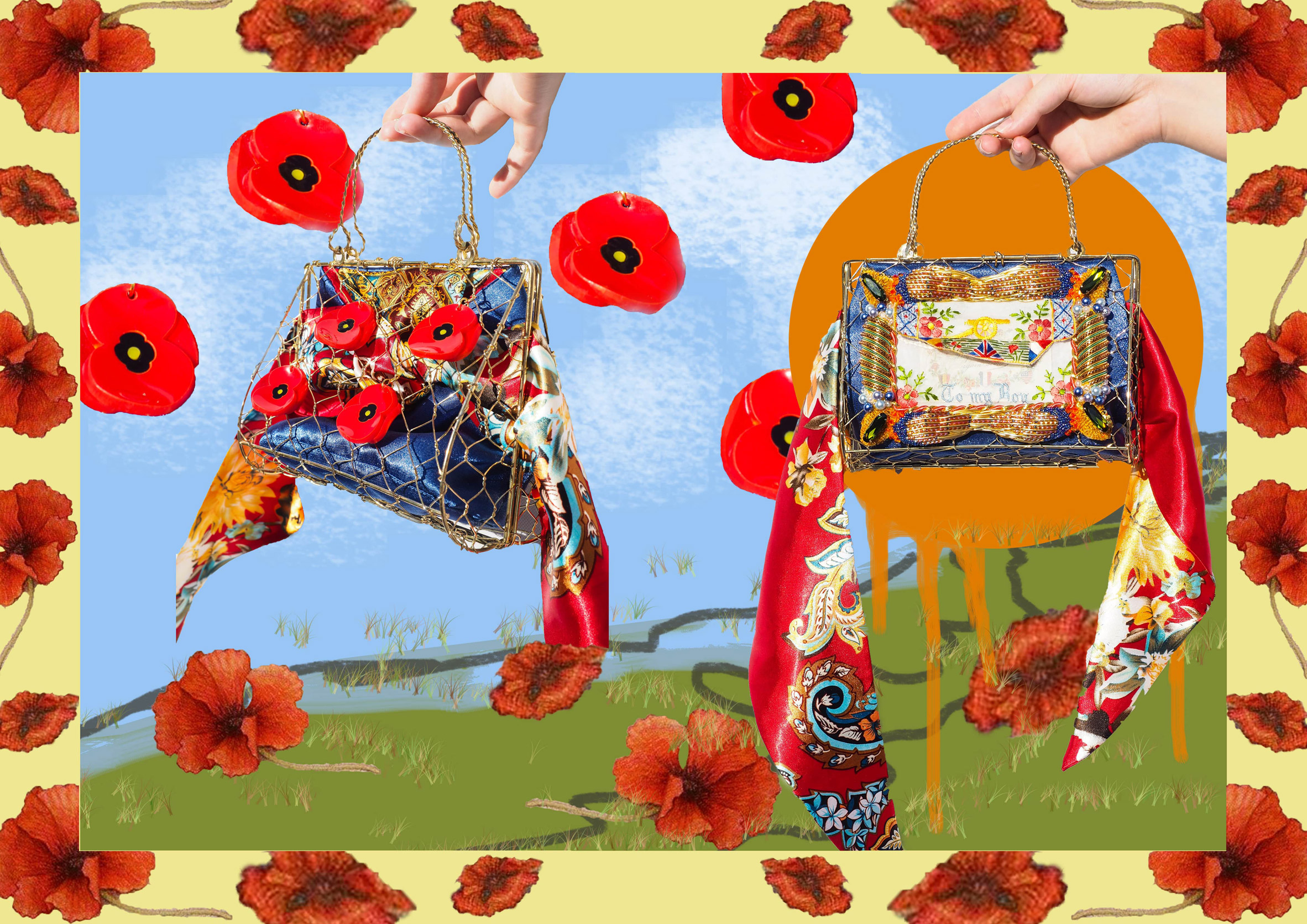
Dollhouse by Francesa Lim
"I drew inspiration from my love of dolls, which I've collected since I was a child. My fascination with them is based on each doll's personal character and style as embodied in its appearance and the craftsmanship behind it.
"The collection is called Dollhouse because the dolls are grouped together into themed 'rooms' that represent their unique character. The Romanticism room is based on 18th-century dolls, while Fantasy features fairytale creatures such as fairies and mermaids.
"The Puppet series are handcrafted dolls from different cultures and Plastic features kitsch-like representations of quirky, modern plastic toys. These different elements come together as a colourful collection of eclectic and experimental designs, representing each doll's theme as an embroidered garment piece."
University: Royal School of Needlework
Course: BA Hand Embroidery
Virtual Design Festival's student and schools initiative offers a simple and affordable platform for student and graduate groups to present their work during the coronavirus pandemic. Click here for more details.
The post Jewellery designs from New Designers showcase question normative gender roles appeared first on Dezeen.
